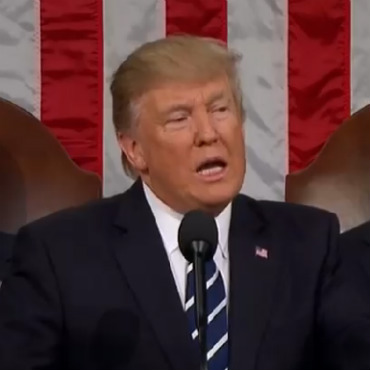Trump's plan to reorganize the federal government
President Trump signed an executive order promising "a comprehensive plan for reorganizing the federal government."

President Donald Trump is looking to devolve federal government functions to state and local governments, or to the private sector. In an executive order signed in the late afternoon of March 13, Trump promised a "comprehensive plan for reorganizing the federal government."
The order pledges to "eliminate or reorganize unnecessary or redundant federal agencies," and seeks overhaul plans from agency heads within 180 days. It specifies that agency heads need to examine whether agency functions and program "are appropriate for the federal government or would be better left to state or local governments or to the private sector through free enterprise."
Trump is also tasking Office of Management and Budget Director Mick Mulvaney with determining "whether the costs of continuing to operate an agency, a component, or a program are justified by the public benefits it provides" and to calculate "the costs of shutting down or merging agencies, components, or programs, including the costs of addressing the equities of affected agency staff."
Mulvaney will also publish a notice requesting comment from the public on improvements in federal agency organization. Once those comments are in, 180 days from the date of the request's publication in the Federal Register, the OMB chief will submit his plan to Trump.
"We have assembled one of the greatest cabinets in history and I believe that so strongly. And we want to empower them to make their agencies as lean and effective as possible and they know how to do it," Trump said in comments to the White House press pool. "Today there is duplication and redundancy everywhere. Billions and billions of dollars are being wasted."
The order, Trump said, "requires a thorough examination of every executive department and agency to see where money is being wasted, how services can be improved and whether programs are truly serving American citizens."
The order dovetails with previously announced plans to seek $54 billion in cuts to civilian agencies in the FY2018 budget, and to boost spending on homeland security and defense.
While concrete plans arising from Trump's order are a ways off, the first test of the new administration's budget priorities could come as soon as next month. The current continuing resolution funding the government is set to expire on April 28, and reports have indicated that Trump will seek riders to the appropriations package covering the rest of FY2017 to increase military spending and to commence work on a wall along the Mexico-U.S. border.
Senate Democrats can't pass their own appropriations bills, but they can block bills from moving in the Senate, potentially leading to a partial government shutdown.
Senate Minority Leader Chuck Schumer (D-N.Y.) warned top Senate Republicans in a letter that "we believe it would be inappropriate to insist on the inclusion of such funding in a must-pass appropriations bill that is needed for the Republican majority in control of the Congress to avert a government shutdown so early in President Trump's Administration."
NEXT STORY: Oversight bills seek to restrict union activity






